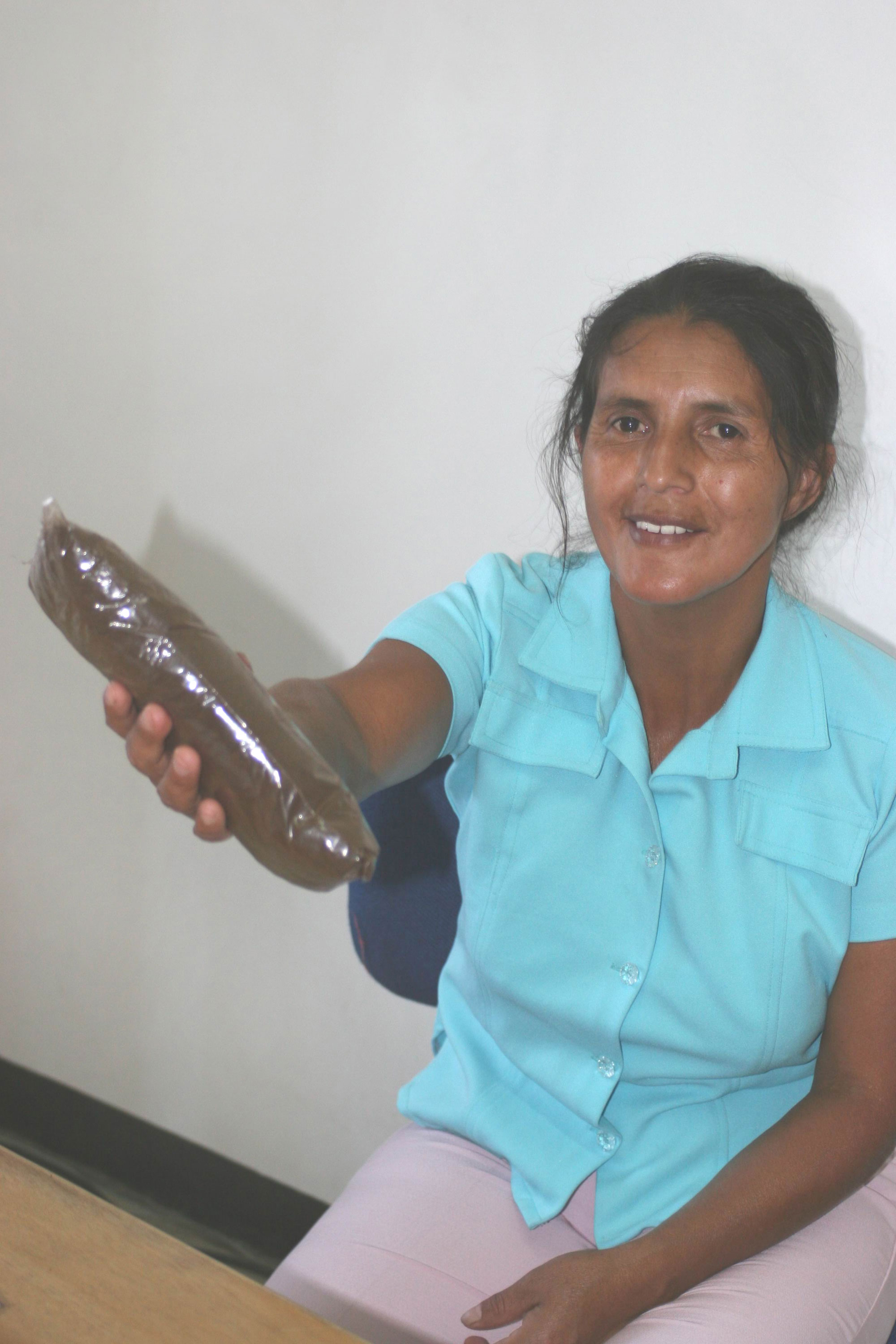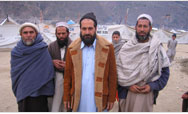You are here » Home » Telling Our Story
Success Story
Community activist inspires drive towards peace and security
Determined Woman Makes a Difference

| |
Photo: IOM
|
|
Norys Pechinché displays panela sugar produced in her village.
“We have learned to process panela sugar and cassava flour, and to operate coffee roasting machines. We learn something different every day,” said Norys Pechinché.
|
The mountain municipality of Cajibío, in Colombia’s Cauca region, covers roughly the same area as Los Angeles, California. Most of Cajibío’s 34,000 residents live in rural areas, such as the village of Ortega, long known for violence and insecurity associated with narcotraffickers, paramilitaries, and guerillas. For years, frightened villagers watched as warring groups destroyed their homes and crops. Retaliation and revenge became commonplace. After so many years of fear, Norys Pechinché, a 58-year-old widow and natural leader, decided it was time for a change.
“We could not continue to foster revenge and to hurt each other as we were doing. We belong to the same land, the same country, and the same region, where we want to live in harmony with our families until we grow old,” said Norys.
Norys began discussing ideas for achieving peace with her neighbors. When a consensus had formed, a group of residents met with Mayor Abaslón Charo of Cajibío to ask him to petition the Colombian government for help. The mayor, encouraged by such citizen initiative, decided to help. With assistance from USAID, the residents and mayor launched a Local Self-Determination Project and began rebuilding Cajibío, its institutions, and its economy. Over time, as the community worked together to build a stronger economy and government, peace and order returned.
The initiative’s results are evident. Fields once dominated by coca plants are now overflowing with legal crops. The economy is growing, and local farmers and businesses are focusing on marketing and selling the goods they produce. Residents are learning new skills from training courses in baking, building, knitting, food-processing, and organic crop cultivation.
Norys Pechinché’s leadership was critical in bringing this change. She is grateful for the new opportunities that are now available, thanks to both the training courses and the improved level of security. On her farm, she said they have learned how to make new products, like panela, a type of brown sugar, and flour derived from the potato-like cassava plant. They have also learned to operate coffee roasting machines. “I give thanks to God every day for having found a peaceful solution to the violence. We learn something different every day,” she said with a warm smile.
Print-friendly version of this page (415kb - PDF)
Click here for high-res photo
Back to Top ^ | 

